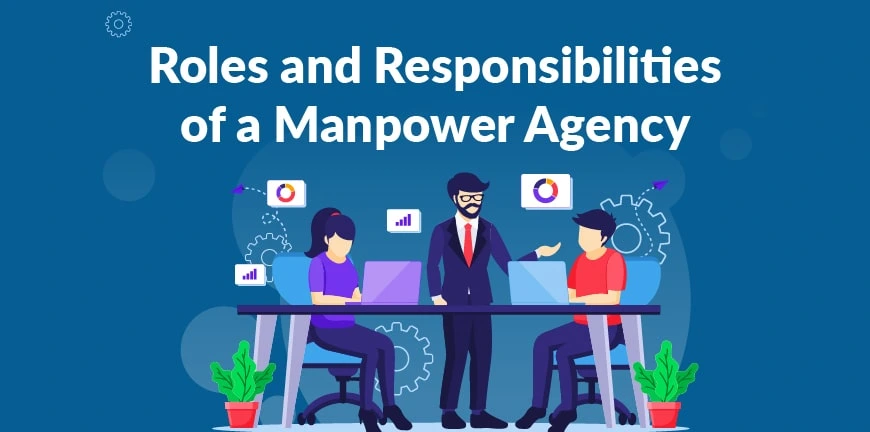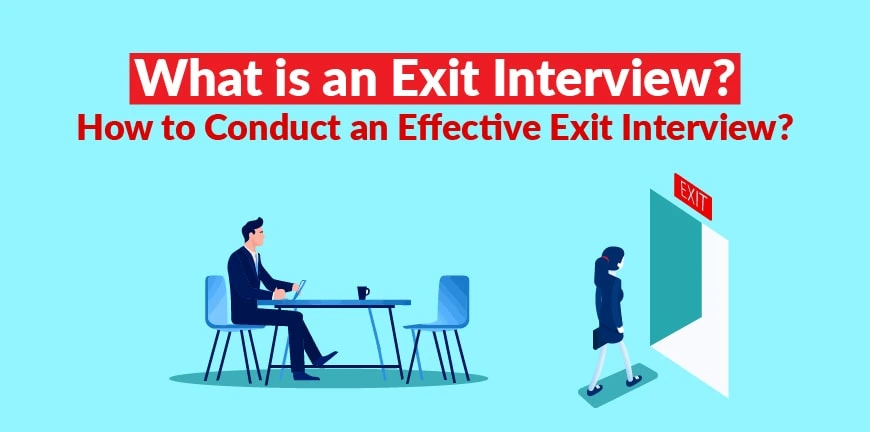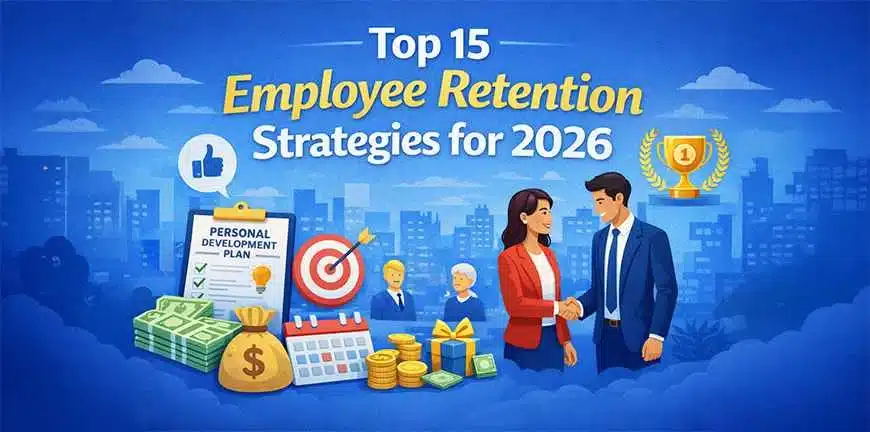
Pharma Companies vs. Counterfeit Drugs: Is There a Healthy Solution?
16/10/2024
What Are the Roles and Responsibilities of a Manpower Agency?
18/10/2024Introduction
Letting go of an employee in the right way is never easy. One can say that the exit interview is just as challenging as the onboarding process of an employee. Yet, the importance recruiters and employers place in the recruitment process of an employee is far more than that of an exit process of the same employee. But not conducting an exit interview the right way, can harm the company in the long run. Regardless of the reason an employee exits an organization, as their employer, it’s important that you conduct an exit interview that not only helps you understand why they chose to leave but also the employee as they get a chance to speak freely about their experience. The analysis can help you reduce your employee turnover rate.
What is Exit Interview?
An Exit Interview refers to the interview that happens between an employee who is exiting an organization and usually a member of the human resources team. It’s essential to carry out the exit interview in the right way as it gives the employer the opportunity to learn why the employee is leaving the organization and with the analysis, moving forward, they can try to make those specific changes in the workplace favouring future employees.
What is the Importance of Exit Interview?
An exit interview is an important part of the offboarding process. There are three main reasons why exit interviews are really important?
- It helps in identifying the weak areas of your company that you need to work on in order to enhance employee experience, reduce employee turnover and retain skilled talent.
- A good exit interview can create a good final impression of your company for the exiting employee, making it a positive experience for them. In the long run, this can greatly help boost company reputation.
- A well-crafted exit interview procedure can sometimes enable you to address specific issues and motivate employees to stay back. Of course, this is only for those employees who hand in their notice.
- Suppose you do lay off an employee, an exit interview could involve a dismissal meeting and issuing of a termination letter, ensuring that you fire employees right away.
The main purpose of exit interviews is to find out as much as you can about the impressions your employees have of you and why they are leaving. And this is especially important with global turnover rates rising so sharply as an effect of The Great Resignation.
What are the Benefits of Effective Exit Interviews?
While you may not be legally required conduct exit interviews, there are a number of benefits of conducting them.
- The feedback from the interview can help enhance employee experience and help you build a strong brand and reputation. This will reduce employee turnover and help attract the right talent.
- An effective exit interview can give organizations a whole new perspective on how they are performing as a firm and how happy their employees are. With this information, organizations can work on improve employee satisfaction, motivation and productivity.
- Feedback can also help you improve your overall business strategies, especially those relating to recruitment, training, and employee development.
- Effective exit interviews can leave a positive lasting impression on the employees about your organization, giving way for the possibility of their return in the future or
How to Conduct an Effective Exit Interview?
The exit interview process must be carried out carefully and effectively as it leaves a lasting impression about the organization on the exiting employee. There are certain practices you can follow to conduct an effective interview and some compelling questions you can ask the exiting employees. With this information, you can craft a template that you can follow for most exit interviews.
1. Choose the right format
Sometimes a face-to-face interview may work, and with some employees a video call or a written questionnaire may work. Depending on the employee’s comfort, you can choose any of the formats to conduct an interview
2. Choose the right person to interview the employee
The first and foremost important aspect is choosing the right person to interview the exiting employee. What does this mean exactly? The employee exiting the organization may be comfortable speaking to an interviewer who is neutral, someone they haven’t been working for or reporting to directly. An HR (Human Resource) who is calm, kind and non-judgemental and is liked by all is usually the best choice.
3. Make the exiting employee feel like they can be honest
The departing employee must feel at ease to talk to you and share their honest feedback. Not only does this make the employee feel comfortable and better and not guilty, but for the employers, this could be a great opportunity to understand the problems and act on them.
4. Set the right time to conduct the interview
The notice period could be quite difficult for both the employer and the employee. The former may be filled with questions as to why the employee is leaving and the latter could have a lot of mixed emotions as they are exiting the organization where they have made a commitment and connection with the organization. So, its best schedule the exit interview date as close as possible to their exit time, as they will feel much more at ease to share honest feedback at the time.
5. Ask open ended questions
Ask questions that can help you understand the reasons for the employee’s departure from the organization, but also bear in mind as to not bog them down with too many intense questions. Keep it casual, more like a peer-to-peer talk. You can ask them questions like
- Why have you decided to leave?
- What did you like most about working in this organization?
- Were your expectations for the role met?
- Did you get the resources you needed to succeed in your role?
- In a typical work week, did you feel stressed at any point? If so, how often?
- Is there anything we could have done to make you stay?
- How would you rate the support and encouragement you received from your superiors during your time here?
- Do you have any advice for your successor?
6. Ensure confidentiality
Ensure the employee that anything and everything they have to say is strictly confidential and they have all the rights to speak freely and openly about their concerns.
7. Share feedback with the employee
You may send a summary of their feedback and corrective measures you will take in the future. This will help maintain a good relationship with the employee even after their departure.
Exit Interview Checklist
Use this checklist to get the results you’re looking for while making the most of your departing employee’s time.
- Offer your departing employee several options for attending your exit interview, including remotely
- For employees who either can’t attend or aren’t interested in an exit interview, provide the option for them to take an exit survey
- Prepared all your questions ahead of time
- Make sure the questions in your list give the employee the opportunity to offer ways they believe your company can change and improve going forward
- Make sure your questions give the employee the opportunity to explain their reason for leaving your company
Wrapping Up
Exit interviews are one of the most valuable tools for organizations to gather feedback from departing employees and gain insights into their workplace culture, management practices, and areas for improvement. These interviews enable companies to better understand the reasons behind employee turnover, identify patterns that may indicate larger issues, and implement changes to improve retention and engagement.
When handled professionally, exit interviews can provide actionable feedback that contributes to long-term organizational growth and employee satisfaction. Ultimately, they serve as a bridge for continuous improvement, making them a key part of a company’s human resource strategy.
Contact Us For Business Enquiry

Rajkumar Shanmugam
Rajkumar Shanmugam is the Head of HR at ALP Consulting, bringing over 19 years of comprehensive HR leadership experience across India and international markets. His expertise spans talent acquisition, employee relations, performance management, compliance, and HR transformation. Rajkumar has a proven track record of driving people-centric initiatives, enhancing workplace culture, and aligning HR strategy with business goals. With extensive experience in US staffing operations and global mobility, he continues to lead organizational excellence through innovation and employee engagement.




